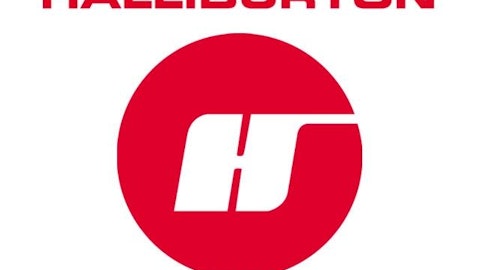In the U.S., advances in drilling technologies, such as horizontal drilling and hydraulic fracturing, have brought about a veritable energy renaissance.
Thanks to staggering production growth from shale oil plays previously thought inaccessible, U.S. oil output is the highest it’s been since at least 1998. Some experts are even suggesting that the shale revolution could help bring about energy independence as early as 2020.
But while the U.S. may have been a first-mover in applying advanced drilling technologies to shale fields, it’s not the only nation endowed with vast shale reserves. In fact, China may hold 1,275 trillion cubic feet of technically recoverable shale gas, according to data from the U.S. Energy Information Administration. If accurate, that’s nearly 50% more than America’s 862 trillion cubic of recoverable reserves.
Will China and other countries around the world see the same success with shale drilling that America has?
A global shale revolution?
Probably not any time soon. According to Andrew Brown, head of international oil and gas production at Royal Dutch Shell plc (ADR) (NYSE:RDS.A), shale development in the rest of the world won’t proceed as quickly as it has in North America.

Brown’s assessment is supported by Shell and other oil majors’ experiences with shale drilling outside of North America. For instance, Exxon Mobil Corporation (NYSE:XOM) retrenched from its operations in Poland last year after initial tests failed to produce commercial quantities of natural gas. Chevron Corporation (NYSE:CVX) echoed similar concerns, offering a bleak outlook for shale production potential in Europe.
Other barriers to shale development outside North America include legal hurdles, such as onerous regulations and political opposition to fracking in Europe, and resource limitations, such as shortages of water — a crucial input in the fracking process — in China.
China highlights challenges for global shale development
In fact, China’s situation is a great example of some of the major hurdles facing foreign shale development. Despite its vast potential reserves of shale gas, Chinese companies have virtually zero experience in shale drilling. As a recent auction highlighted, of the 16 firms that received rights to explore the country’s shale gas fields, not a single one had drilled a gas well before.
China also lacks two other crucial advantages that helped the U.S. become a pioneer in shale drilling — the existence of clearly defined and enforceable property rights and the existence of a vast network of pipelines and other infrastructure capable of transporting large volumes of oil and gas.
For instance, though oilfield services firms Schlumberger Limited. (NYSE:SLB) and Halliburton Company (NYSE:HAL) have shown a keen interest in developing China’s shale resources, the absence of clearly defined and enforceable patent and property protection laws has given them reason to pause.
Instead, they’ve decided to gain exposure to China’s shale potential through acquiring interests in smaller, Chinese companies that are closer to the action. Last year, Schlumberger Limited. (NYSE:SLB) paid roughly $80 million to purchase a 20% stake in Hong Kong-listed Anton Oilfield Services Group, while Halliburton Company (NYSE:HAL) inked a joint venture deal with China’s SPT Energy Group.
Final thoughts
As you can see, the promise of a global shale revolution faces numerous challenges, some of which include legal and regulatory hurdles, foreign firms’ lack of expertise, equipment and personnel, infrastructure constraints, and resource shortages.
But while these challenges certainly appear daunting, they aren’t insurmountable. Foreign firms are doing all they can to gain the necessary expertise in shale drilling, including asking leading oilfield services firms for their help and partnering with U.S.-based shale drillers through joint venture agreements. Eventually, they’ll catch up. But for now, North America still has a major advantage.
The article Will the Shale Revolution Go Global? originally appeared on Fool.com.
Fool contributor Arjun Sreekumar has no position in any stocks mentioned. The Motley Fool recommends Chevron and Halliburton and has options on Chesapeake Energy.
Copyright © 1995 – 2013 The Motley Fool, LLC. All rights reserved. The Motley Fool has a disclosure policy.

